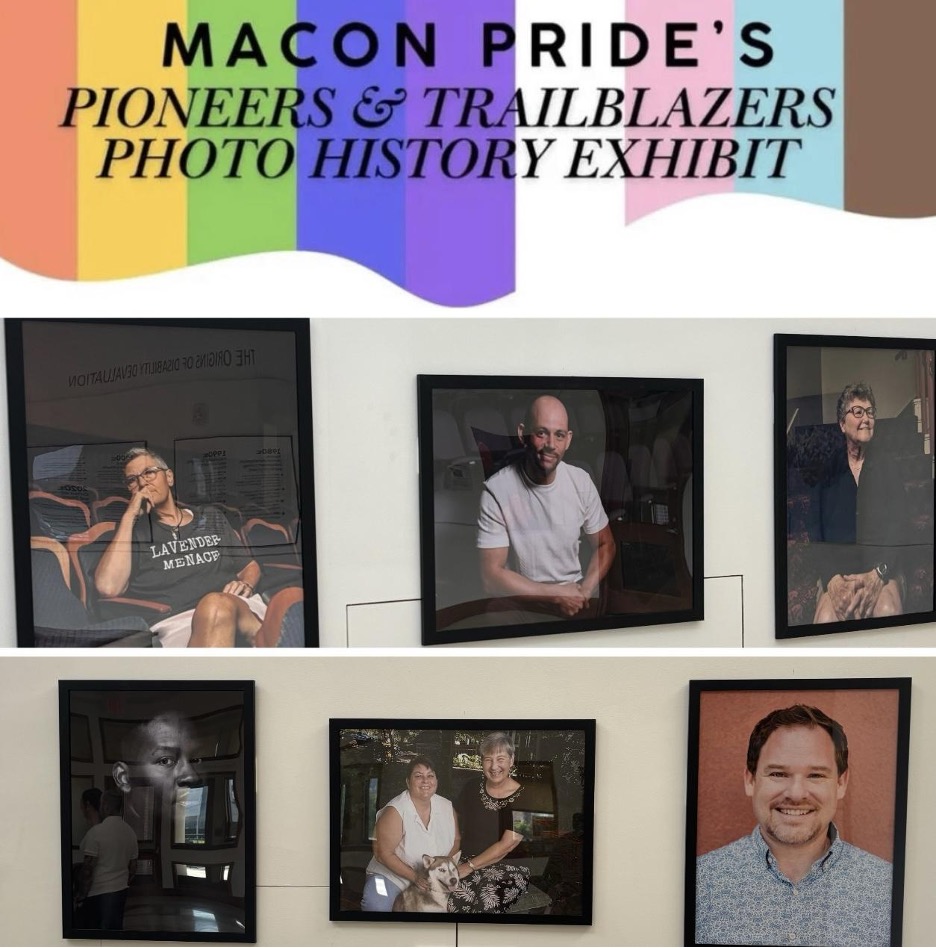
Members of Macon’s LGBTQ community gathered inside The Tubman Museum of African American Art, History, and Culture on June 5 to celebrate the start of Pride season and the induction of three local advocates at the forefront of activism, art, and education who have contributed significantly to LGBTQ visibility and progress.
Portraits of Marques Redd, co-founder and co-executive director of Rainbow Serpent, Richard Frazier, artistic and executive director of Theatre Macon, and Dr. Thomas Bullington, senior lecturer of English and Liberal Arts at Mercer University, were among 21 influential Macon LGBTQ leaders featured in the Pioneers and Trailblazers exhibit. Created in partnership with Storytellers Macon, inductees also shared their journeys of self-acceptance and advocacy throughout the evening.
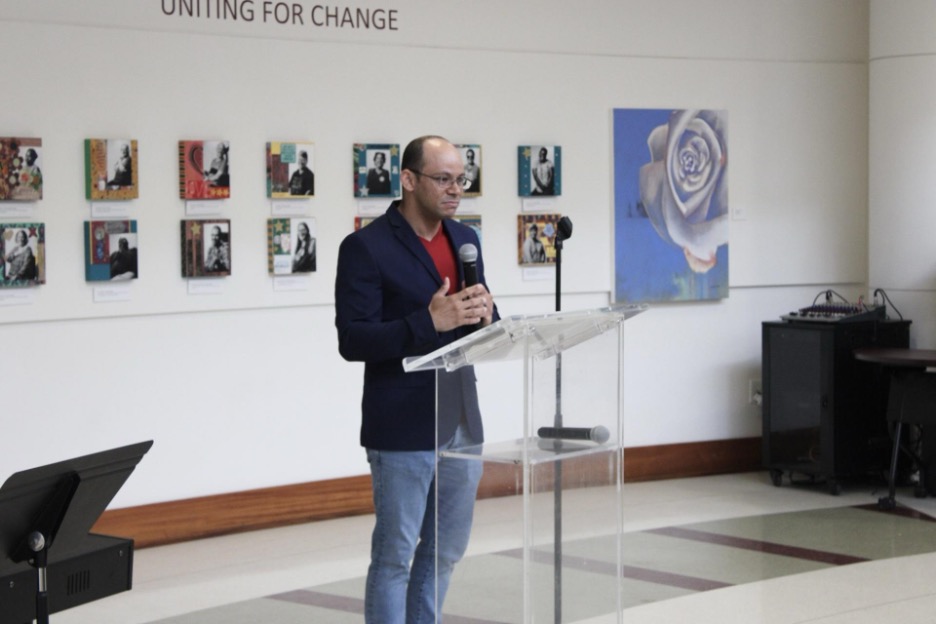
“We’ve been doing this exhibit for the past four years,” said DeMarcus Beckham, co-founder and special events chair of Macon Pride. “Each year, we add two to three individuals who we feel have contributed not just to Macon but our region’s history and the preservation of our communities’ civil rights.”
Since 2019, Macon Pride has hosted its annual Pride festival during the last week of September, and this year, the tradition will continue in addition to special programming throughout the month of June. For inductee Richard Frazier, the availability of multiple events created specifically for LGBTQ Maconites and their allies not only represents a thriving queer community but also creates a different narrative of life as a queer person in a small Southern town.
“Macon is an interesting community because it is a small town, but it’s not a small town in the way that I think people think it is,” Frazier said. “The culture here and the amount of emphasis that our community places on the arts and on creating community for everybody really sets it apart, I think, from most small towns, specifically in Georgia. It has a big city feel where you never know who you’ll get to meet, but it also has this lovely sense of community,” he said.
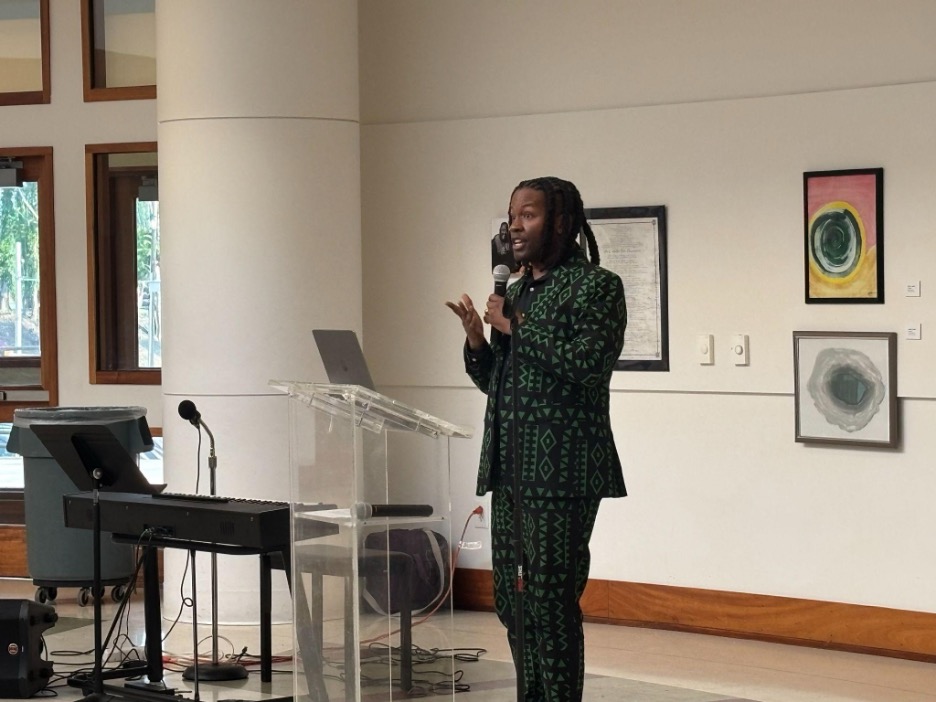
Macon native and inductee Marques Redd works to advance Black LGBTQ culture by exploring multimedia art, traditional African spirituality, and emerging tech. He tells GLAAD that the existence of an organization like Macon Pride would have significantly impacted his life during his formative years.
“When I was growing up, such an organization did not exist, and I think that really left a gap for people and the community,” Redd said. “There were no obvious places where people could turn for support, community, help, or fellowship.”
This year and every year going forward, Beckham says organizers want to be intentional about Macon Pride being an organization available to the community every day of the year.
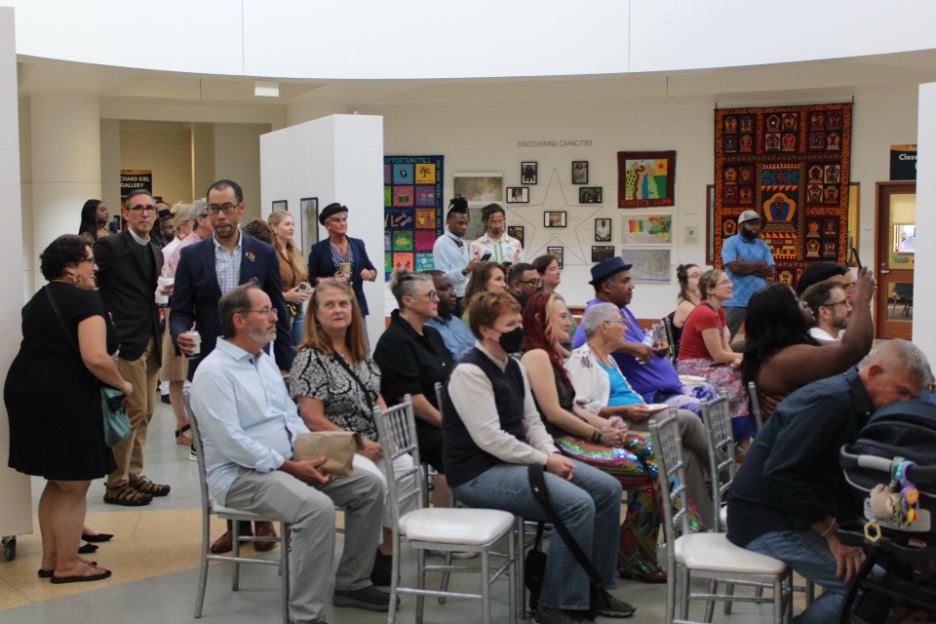
“Having local Pride, there’s a responsibility to show that we have a community here,” Beckham said. “We will hold space. We are your doctors, we are your lawyers, we are the people who are your community servants.”
Like Redd, whose family owned the now-closed Miracles Art Gallery in the 1990s, which housed one of the largest collections of Black art in the Southeast, in addition to his LGBTQ portrait, Redd has also curated a special exhibit of his family’s impressive Black art collection on the second level of the Tubman Museum simply titled “Miracles.”
“Multiple parts of my life are coming together in such a beautiful way, and I’m just excited to share this with everybody,” Redd said.
Beckham beams when discussing the Tubman Museum’s support of the queer community by hosting the LGBTQ photo exhibit and the opportunity provided in the space to celebrate the intersecting identities of the artists and art within its walls.
“To host an event in one of the largest African American museums in the southeast is baffling,” he said. “People will be able to see community spaces like this opening up for [LGBTQ] individuals and for us to have those conversations about intersectionality.”
Inductee Richard Frazier tells GLAAD that the evening was a reminder “to keep spreading love and to keep creating spaces where people feel safe and welcome,” specifically in places where the opposite experience is often expected.
“You can be your most authentic self even in this small town, and you don’t have to go somewhere else to be a part of a larger community or a safe space,” Frazier said. That’s something that I’ve really appreciated about what Macon Pride has done.
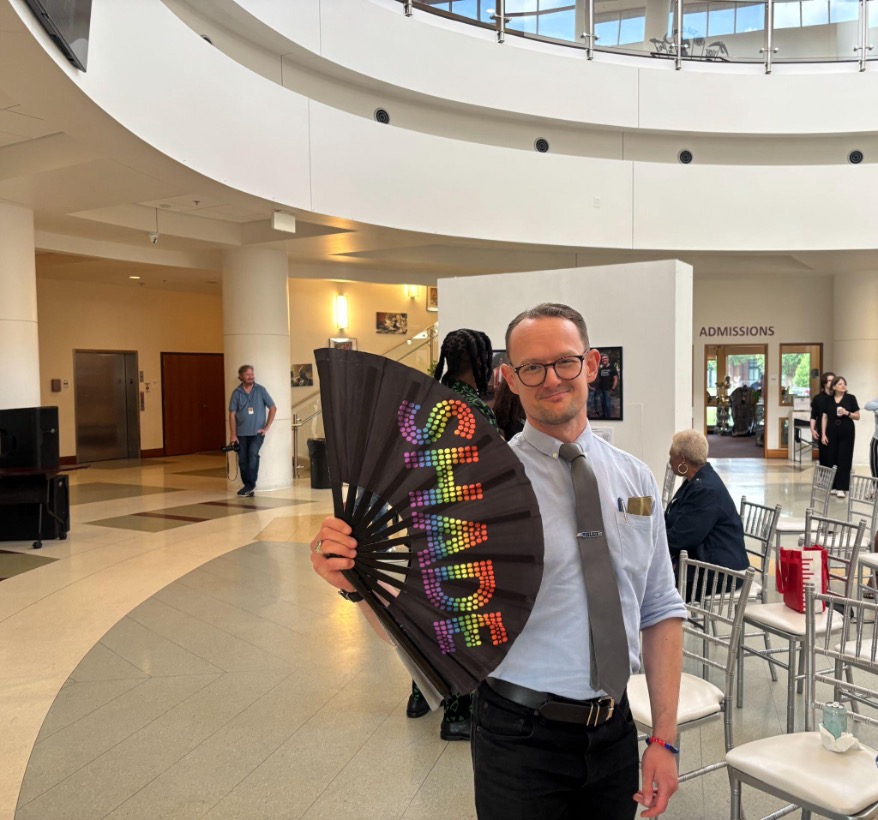
“This goes beyond anything that I could have imagined as a child and a young teenager,” Redd said. “It’s really thrilling to see, and it shows that times are changing. It’s taken community-wide pressure and organizing to make this happen, and I think it shows the power of what we can do when we all come together.”
At least six more Pride-related events are scheduled in Macon in June before more than 4,000 attendees from over 13 different counties in Georgia descend on Macon for the major Pride celebration. Beckham wants folks to know that Pride in Macon is more than “standing on a float dancing to Lady Gaga songs.”
“It’s an opportunity to find resources in your community and to find connections with other people like you,” he said. “But [it’s an opportunity] also to challenge norms because we are here. We have always been here and will continue to hold up space. And as long as there’s breath in my lungs, Macon Pride will exist, and we will have a community here.”













